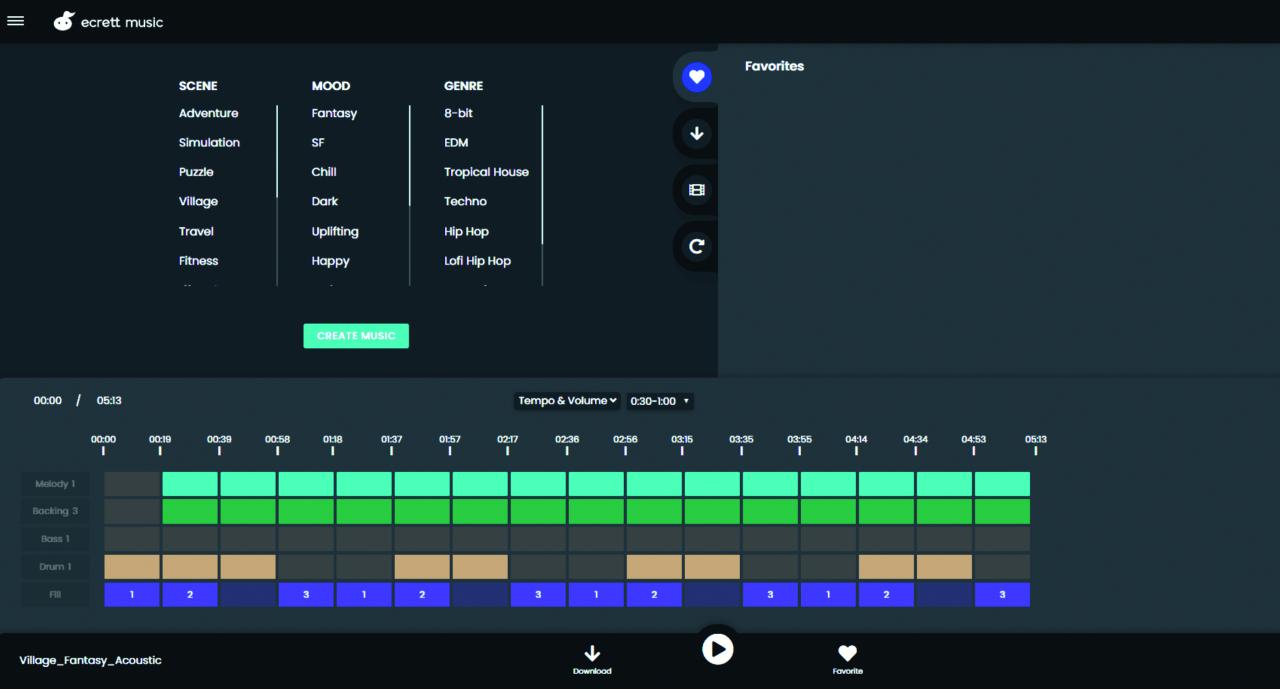Most Popular AI Tools for Music Creation on Google Play highlights a revolutionary shift in how music is composed and produced through innovative technology. With the advent of artificial intelligence, musicians and creators now have access to a plethora of tools that enhance creativity and streamline the production process. This exploration delves into the most effective AI applications available, showcasing their capabilities and how they are reshaping the music landscape.

The integration of AI in music creation is not only transforming the technical aspects but also democratizing the art, allowing individuals with varying levels of expertise to engage in music production. From generating melodies to assisting in sound design, these tools are tailored to cater to the needs of both amateur enthusiasts and professional musicians alike.
In the contemporary discourse surrounding environmental sustainability, renewable energy has emerged as a pivotal topic. As global awareness of climate change intensifies, the transition from fossil fuels to renewable energy sources is not merely a choice, but a necessity. This article aims to explore the evolution of renewable energy, its various forms, benefits, and the challenges that face its wider adoption.
The Historical Context of Renewable Energy: Most Popular AI Tools For Music Creation On Google Play
The concept of renewable energy is not new; humanity has utilized natural energy sources for millennia. Ancient civilizations harnessed wind and solar energy through sails and passive solar architecture. The modern era, however, saw significant advancements in technology and efficiency that have transformed renewable energy into a viable alternative to fossil fuels.
In the late 19th century, the development of the first hydroelectric power plants marked a significant milestone in harnessing renewable resources. The advent of wind turbines in the 20th century further diversified energy sources. The oil crisis of the 1970s catalyzed interest in renewable energy solutions, leading to substantial investments in solar, wind, and geothermal technologies.
Types of Renewable Energy
Renewable energy encompasses a variety of sources. The primary types include:
- Solar Energy: Solar power harnesses sunlight using photovoltaic cells or solar thermal systems. It is one of the fastest-growing renewable energy sectors globally.
- Wind Energy: Wind turbines convert kinetic energy from wind into mechanical power, which can be used for electricity generation.
- Hydropower: This involves generating electricity through the movement of water, typically in dams. It accounts for a significant share of the world’s energy production.
- Geothermal Energy: This type utilizes heat from the earth’s core for heating and electricity generation. It is particularly effective in regions with volcanic activity.
- Biomass Energy: Biomass refers to organic materials that can be used for fuel, including wood, agricultural residues, and animal waste. It is considered renewable as long as it is sourced sustainably.
Benefits of Renewable Energy
The transition to renewable energy offers numerous benefits, which can be categorized into environmental, economic, and social advantages:
Environmental Benefits
One of the most compelling reasons for adopting renewable energy is its potential to mitigate climate change. Unlike fossil fuels, renewable energy sources emit little to no greenhouse gases during operation, thus reducing overall carbon footprints. Furthermore, renewables help decrease air and water pollution, contributing to improved public health and biodiversity.
Economic Benefits
Investing in renewable energy creates jobs in manufacturing, installation, and maintenance. The renewable energy sector has shown resilience during economic downturns, often providing stable employment opportunities. Additionally, the cost of renewable technologies, particularly solar and wind, has plummeted over the past decade, making them increasingly competitive with traditional energy sources.
Social Benefits
Renewable energy promotes energy independence, reducing reliance on imported fuels. This can enhance national security and stabilize energy prices. Furthermore, local communities can benefit from decentralized energy production, leading to increased energy access and empowerment.
Challenges Facing Renewable Energy Adoption
Despite its advantages, the transition to renewable energy is fraught with challenges. Key obstacles include:
Intermittency
Many renewable energy sources, such as solar and wind, are intermittent, meaning they do not produce energy consistently throughout the day or year. This variability necessitates the development of storage solutions or backup systems to ensure a stable energy supply.
Infrastructure Limitations
Existing energy infrastructure is primarily designed for fossil fuel consumption. Transitioning to renewable energy systems requires significant investment in updated grid technologies, energy storage, and distribution systems.
Regulatory and Policy Challenges, Most Popular AI Tools for Music Creation on Google Play
Government policies play a crucial role in the adoption of renewable energy. Inconsistent regulations, lack of incentives, and subsidies for fossil fuels can hinder progress. A conducive policy environment is essential to encourage investments in renewable technologies and infrastructure.
The Future of Renewable Energy
The future of renewable energy appears promising, driven by technological advancements and societal demand for sustainable practices. Innovations in energy storage, smart grids, and energy efficiency are expected to enhance the viability of renewables. Additionally, international agreements, such as the Paris Agreement, continue to push nations towards adopting cleaner energy solutions.
The rise of electric vehicles (EVs) also signifies a shift towards renewable energy consumption. As EV technology becomes more mainstream, the integration of renewable energy sources into transportation systems presents new opportunities for reducing emissions and enhancing energy efficiency.
Conclusion
The evolution of renewable energy reflects a broader shift in societal values towards sustainability and environmental stewardship. As technological advancements continue to shape this sector, the potential for renewable energy to address climate change and foster economic growth is immense. By overcoming existing challenges and investing in innovative solutions, societies can pave the way for a cleaner, more sustainable energy future.
In conclusion, renewable energy is not just an alternative; it is an essential component of a sustainable future. As individuals, communities, and nations recognize the urgency of climate action, the adoption of renewable energy solutions will play a pivotal role in achieving global sustainability goals.








